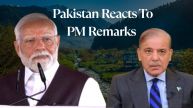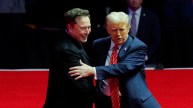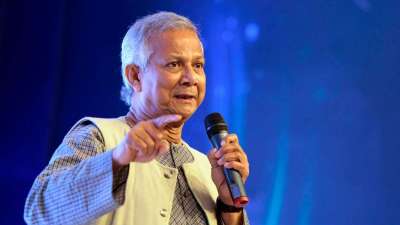US President Donald Trump has made a controversial move by appointing two individuals with past links to Islamic jihadist activities and Lashkar-e-Taiba to the White House Advisory Board. Reports indicate that both had reportedly travelled to Pakistan for training at an Islamist terror camp and served a 20-year prison sentence in the US for jihadist-related offences. They have now been named as members of the White House Advisory Board. The revelations were first made by journalist Laura Loomer on X (formerly Twitter). It has come to light that Ismail Royer (previously known as Randall Royer) had travelled to Pakistan to train in an Islamic terror camp. So, why did Trump make this move? What could be the motive behind it? Here’s a closer look at the possible reasons.
EXCLUSIVE:
---Advertisement---🚨 Islamic JIHADIST who traveled to Pakistan to train in an Islamic terror camp and served a 20 year prison sentence in the US for Jihadi terrorist activities has now been listed as a member of the White House Advisory Board of Lay Leaders, Announced Today on the… pic.twitter.com/d1HHHGUFYX
— Laura Loomer (@LauraLoomer) May 17, 2025
---Advertisement---
Who Are The Former Terrorists?
Ismail Royer, an Islamic extremist convicted in terrorism cases, and Shaykh Hamza Yusuf, a former controversial figure, are the controversial appointments made by the US president to the White House advisory board.
Why Such A Move?
Experts believe that Trump’s team values Royer and Yusuf because they have direct experience with extremist groups. The US wants to use their knowledge to help fight terrorism. Trump and his advisers may believe that Royer, who has worked with organisations after prison and has publicly rejected jihadism, can offer useful insights about groups like LeT. The United States might also be planning to connect with moderate Muslim communities and address radical ideas, with Yusuf, as a religious scholar, playing a key role in that. Additionally, this aligns with Trump’s recent actions, such as negotiating with Hamas to free hostages in Gaza, showing a practical approach to dealing with adversaries. However, no official confirmation of this has been made.
Trump’s second term has focused on fighting anti-Semitism and changing U.S. policy in the Middle East. Choosing people linked to Hamas and LeT might be a planned effort to involve key players in conflicts like Israel-Palestine and India-Pakistan, or to shake up U.S. diplomacy. But this move seems to conflict with Trump’s strong support for Israel and his recent talks with Israeli Prime Minister Netanyahu.
However, these appointments fit with Trump’s usual style of making unexpected choices. However, they could cause serious problems both in international relations, especially with important allies like India and Israel, and at home.
Ismail Royer – Islamic Extremist, Convicted In Terrorism Cases –
In 2003, Royer was indicted on terrorism-related charges, including conspiracy to levy war against the United States and providing material support to al-Qaeda and LeT. He is an American convert to Islam. He pleaded guilty in 2004 to aiding and abetting the use of firearms and explosives, receiving a 20-year sentence and serving 13 years. Royer’s past reportedly includes propaganda efforts, involvement in firing at Indian positions in Kashmir, and alleged links to the 2008 Mumbai attacks.
Who Is Shaykh Hamza Yusuf?
Hamza Yusuf is one of the founders of Zaytuna College, a school that teaches Islamic law. Over the years, some people have raised concerns about him, saying he has downplayed what jihad means and might have connections to groups like the Muslim Brotherhood and Hamas. Just before the 9/11 attacks, he spoke at an event supporting Jamil al-Amin, a man who was later found guilty of killing a police officer. Yusuf had criticised the U.S., calling it racist, and suggested that al-Amin was innocent, although he was convicted. He has also questioned the fairness of the trial of Sheikh Omar Abdel-Rahman, who was convicted for bombings in New York during the 1990s. These points have made Yusuf a controversial figure in some circles.












